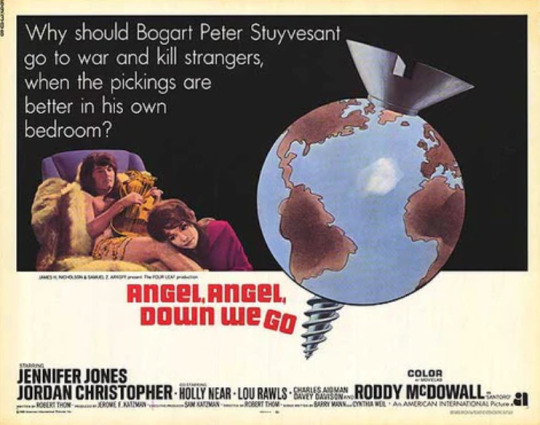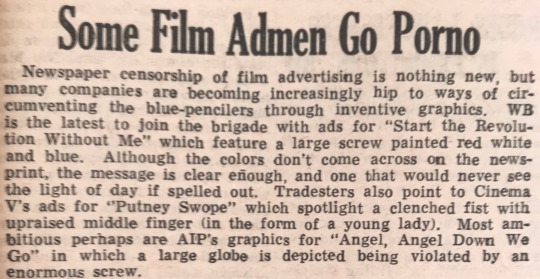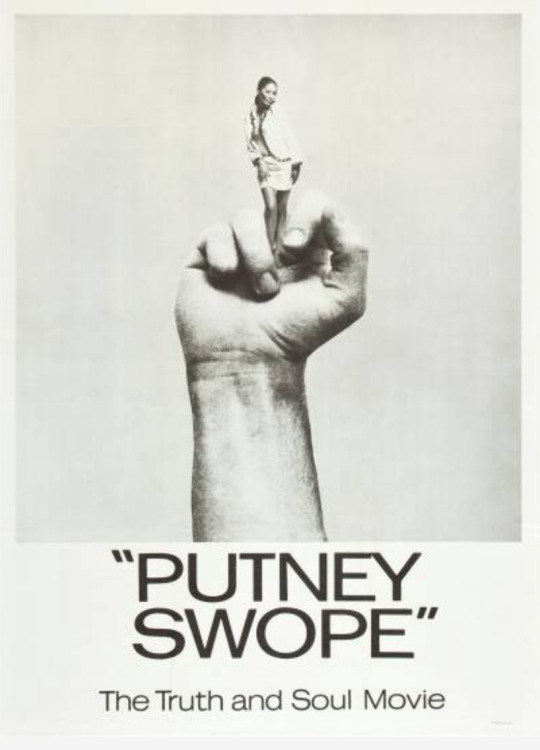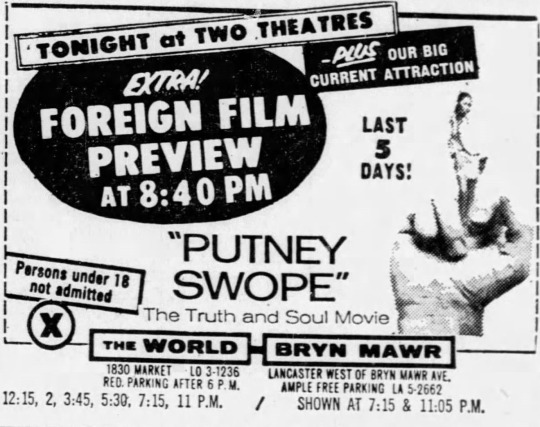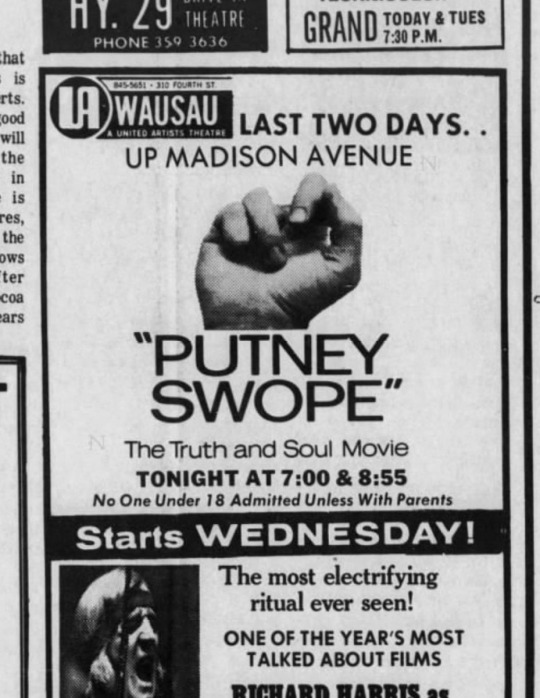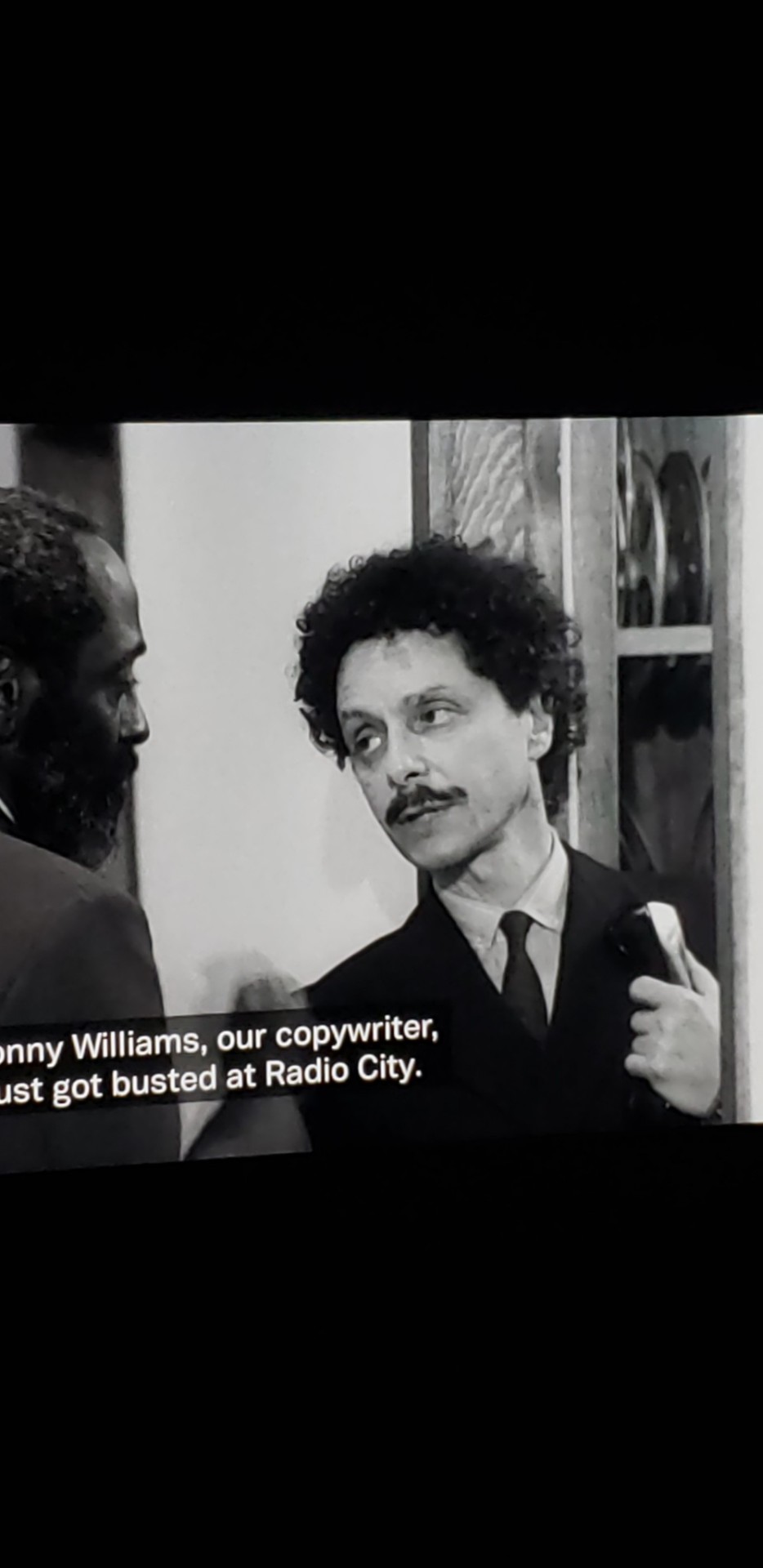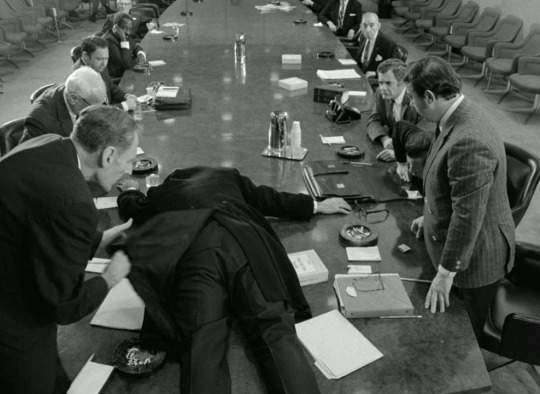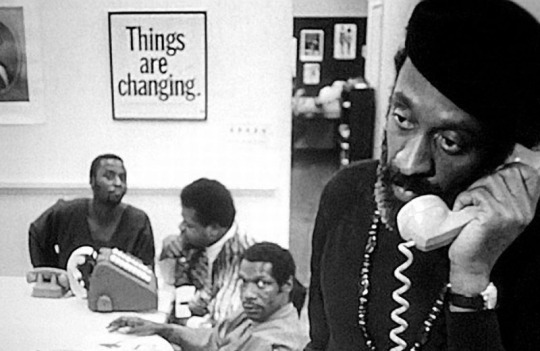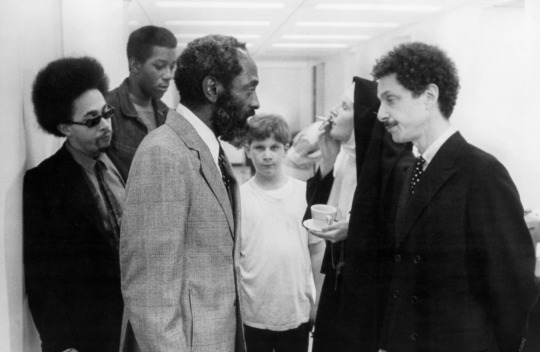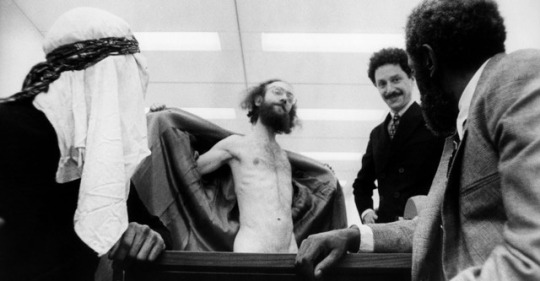#putney swope
Text
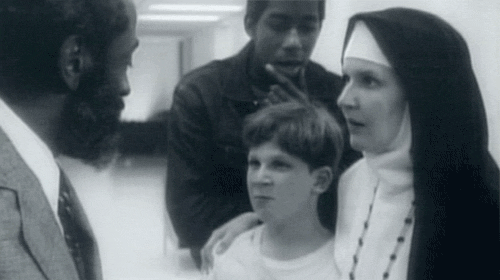
14 notes
·
View notes
Photo
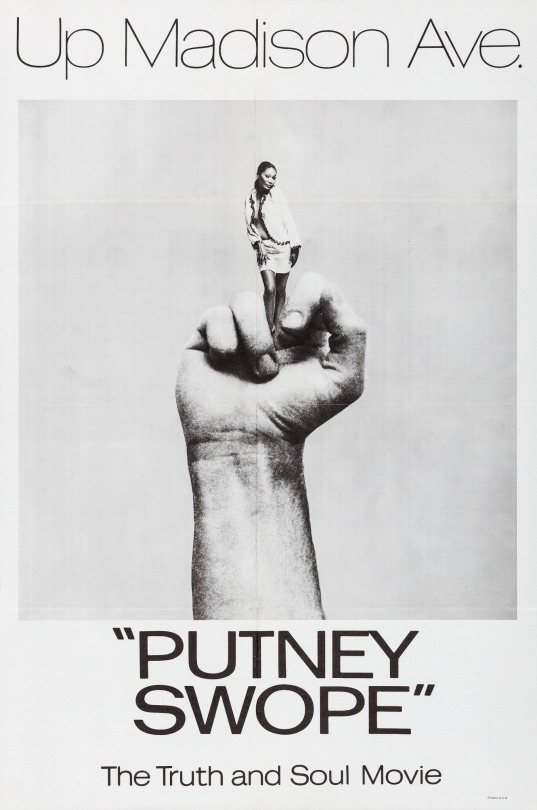
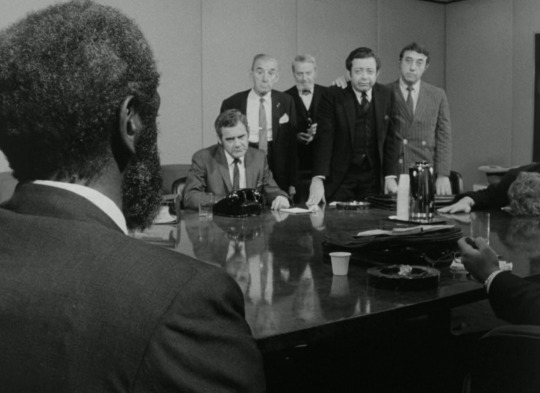
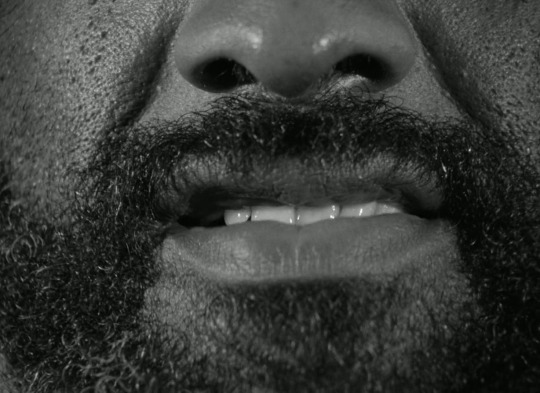
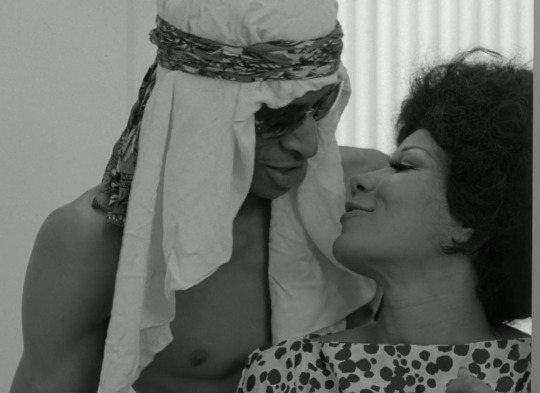
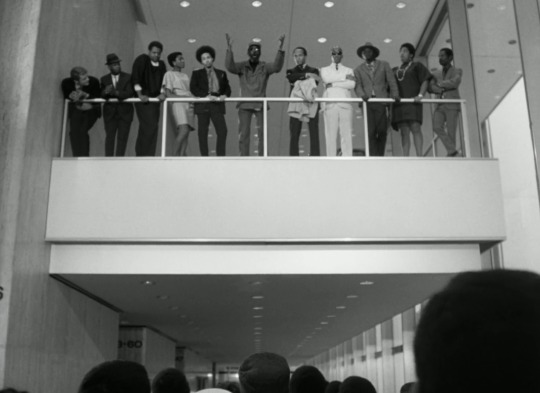
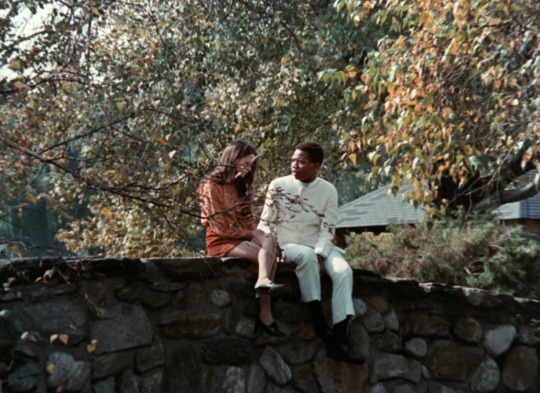
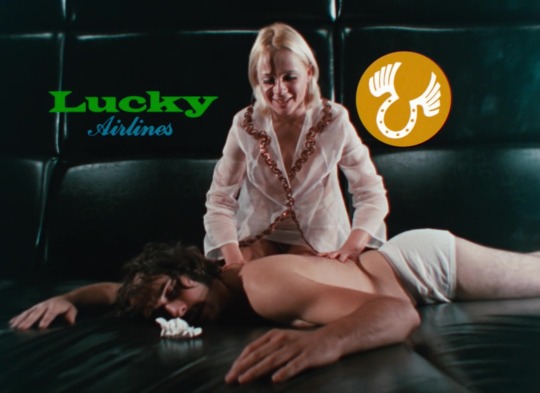
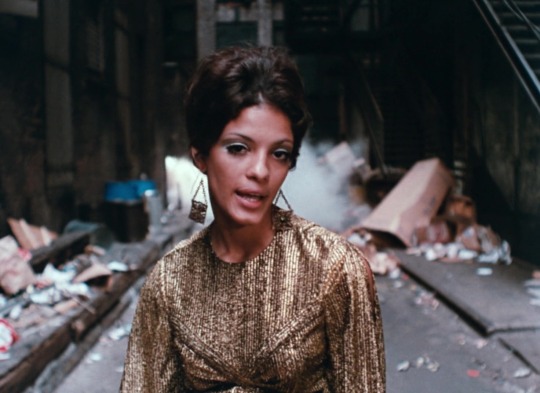
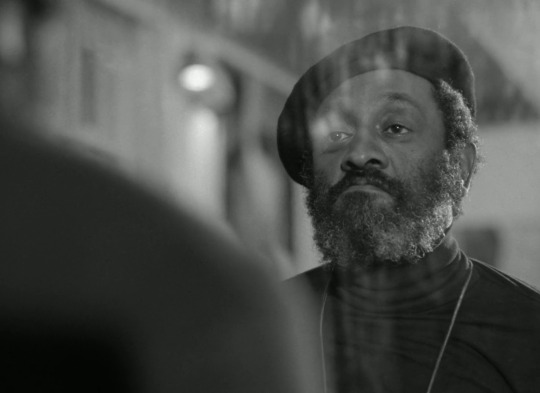
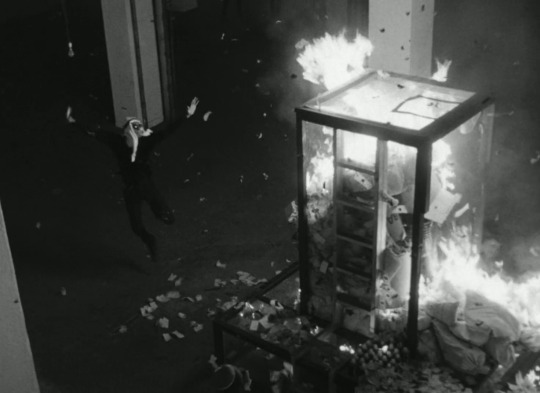
Putney Swope (1969, Robert Downey Sr.)
4/7/23
#Putney Swope#Robert Downey Sr.#Arnold Johnson#Allen Garfield#Antonio Fargas#Stan Gottlieb#60s#comedy#New Hollywood#indie#absurd#satire#business#advertising#African-American#New York#black power#surreal#art film#avant-garde#revolution#cult films#black and white
19 notes
·
View notes
Text
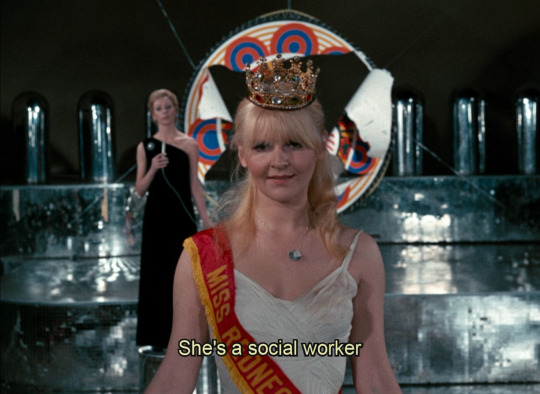
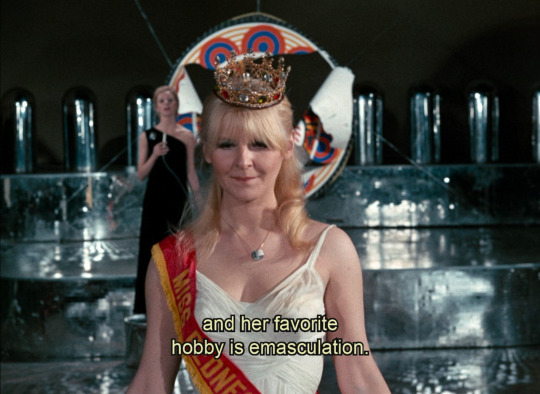
Putney Swope (1969), dir. Robert Downey Sr.
4 notes
·
View notes
Text
Happy birthday blaxploitation and cult film icon Marlene Clark! Here's some Ganja and Hess and The Beast Must Die art to mark the occasion!

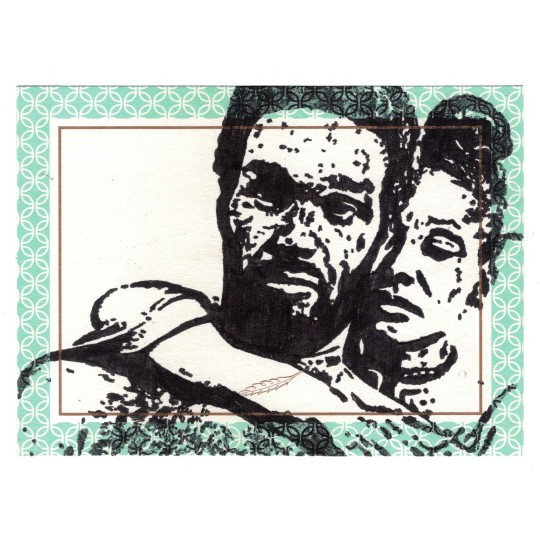
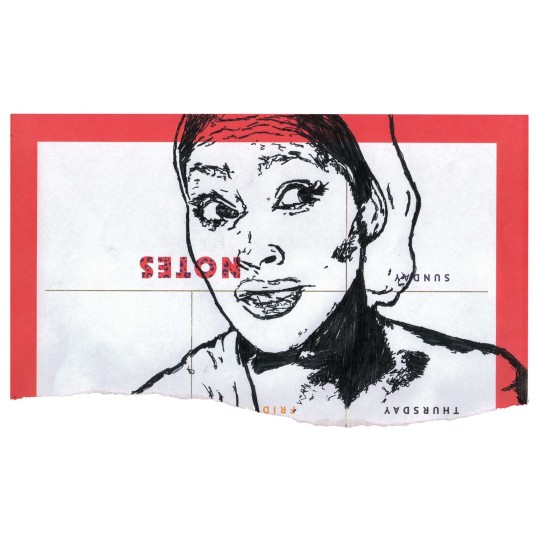
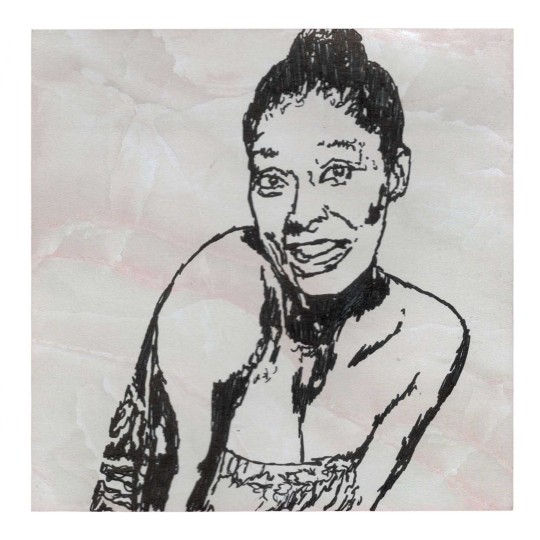
#happy birthday#marlene clark#birthday#putney swope#ganja and hess#the beast must die#slaughter#night of the cobra woman#switchblade sisters#clay pigeon#beware! the blob#newman's law#movie art#art#drawing#movie history#pop art#modern art#pop surrealism#cult movies#portrait#cult film
6 notes
·
View notes
Text
Putney Swope (1969)
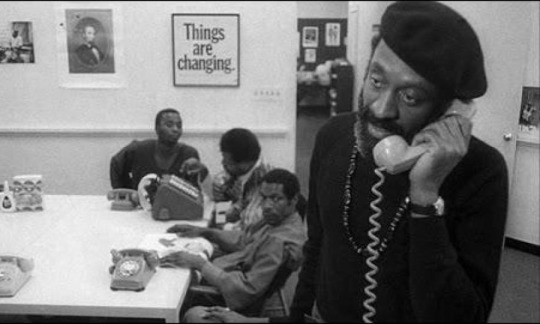
Humor, especially satire, can broadly be broken down into a few pillars: content, intent, author, and audience. The final two elements have come more into the fore of rhetoric in recent years with social media giving people a more immediate connection with creators. In many ways, that can be good: by all means, call comedians out on their toxic shit and hold them accountable. It also colors interaction with works of the past, where we are all at some degree of remove from the piece and its cultural moment and context. Robert Downey, Sr in this film plants himself firmly in a similar camp to territory presently occupied by the likes of Sacha Baron Cohen or Trey Parker and Matt Stone: he is a provocateur. The “equal-opportunity offender” defense is exhausting, smacking more of someone excusing wanting to make lazy jokes about one minority by just shooting a buckshot spray of other lazy jokes about different minorities and calling it even. Everyone’s dumb, but I’m going to point that out by leaning on systemic structures which have been used to oppress rather than trying to subvert or find a different tack or joke to make. That’s a neverending rabbit hole, but it’s interesting to perhaps tease apart to some degree Downey, Sr’s intent. Putney Swope is anarchic satire of the highest and yet lowest order, one unfettered expression of insanity from top to bottom. He draws on as many crass sterotypes as he can: a Chinese man throwing firecrackers, an Arabic man ad-libbing his way through prayer and later throwing a bomb, Mexicans in sombreros tossing around money bags. All unforgivable and unfilmable in today’s environment, though perhaps in their own insane way a mockery of the Hollywood stereotypes so nakedly entrenched at the time and still persisting in insidious ways to this day. Yet is it the place of a white man to tell a story about black people taking their own power and making of it what they will? That authorial question is much more forward in the dialogue nowadays. Perhaps the corporate-political satire is more palatable to contemporary tastes. The President is a circus sideshow performer with an eerie likeness to Reagan puppeteered by a Nazi. Corporations exist to shill trash, and the corporate ladder benefits the few while trodding on the many. Swope is inept and yet he remains at the top. Attempts at dissent are met with apathy. How little some things change.
Putney Swope is also riddled with pure wit. Jokes fly by at rapid pace, one barely registering before the next has begun. The commercials, all shot in color, are often pure gold in an off-kilter sort of way. A bit surrounding Miss Redneck New Jersey is a masterstroke of nonsequiturs building to a stupid pie joke, and the ad for pimple cream is utterly bonkers. A photographer keeps showing up, apparently the best in the biz, and yet negotiations go south every time, numbers rendered meaningless. Also apparently you can travel from New York to DC in an instant. A deadpan tilt-up to, of all things, a massive poster of Sidney Poitier makes a sex scene just the right kind of awkward. Dialogue is handled almost as if this were a John Waters joint, seemingly unconnected ideas delivered in a flat, off-kilter manner and random phrases repeated endlessly. This movie knows how to sling jokes, and you’re gonna get a full smorgasbord of it.
THE RULES
SIP
Someone digs it.
Double entendre.
Someone gets fired or otherwise dismissed.
BIG DRINK
The freight elevator is mentioned.
The movie changes to color.
Applause!
0 notes
Photo
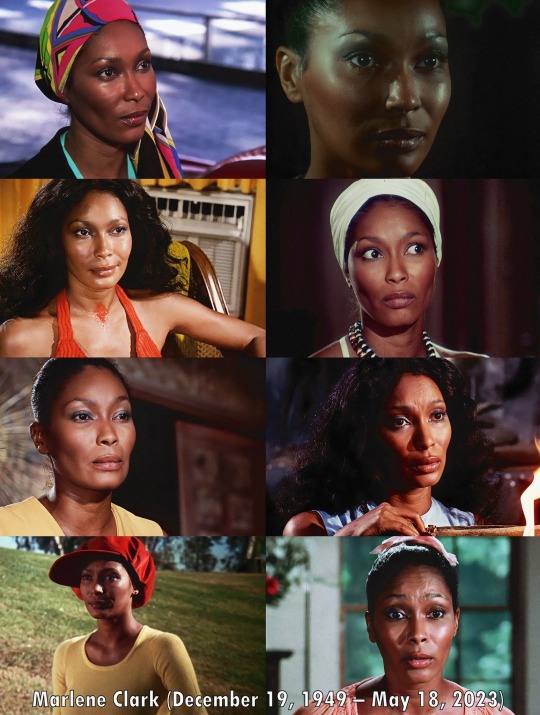
Marlene Clark (December 19, 1949 – May 18, 2023) was an actress that made her first theatrical appearance in the 1968 movie "For Love of Ivy." Between 1968 and 1971, Clark starred in several films and T.V. shows, such as "Putney Swope" (1969), "The Landlord" (1970), "Marcus Welby, M.D." (1970), and "Bonanza" (1971).
In 1972, Clark elevated her acting career by starring in the horror films "Night of the Cobra Woman" and "Beware! The Blob." In addition, Clark appeared in "Slaughter" with Jim Brown. Unfortunately, she and Brown coincidently passed away on the same day (May 18, 2023).
Clark's career persisted in horror movies in 1973 by starring in the Bill Gunn film "Ganja & Hess" with Duane Jones. She also had a minor role in "Enter the Dragon" as Roper's assistant. Clark appeared in two horror movies in 1974, which include "The Beat Must Die" and "Black Mamba" and "Lord Shango" in 1975. At this point, no other black actresses appeared in more horror movies than Clark. She starred in T.V. shows in the mid-70s, with "Sanford & Son" as her most notable. She played Janet, who was Lamon't girlfriend, in seasons 5 and 6. Additional movies and T.V. shows Clark appeared in the 70s were "The Richar Pryor Show," "The Baron," and "What Happening!" Finally, during the 1980s, she starred in only a few T.V. shows, with her last acting credit in 1988.
Marlene Clark established herself in the horror genre when black actresses did not see a lot of opportunity in that area. She had a beautiful screen presence, and we are thankful for her work.
https://www.daarac.ngo
Slaughter (1972)
https://www.daaracarchive.org/2009/07/slaughter-1972.html
Night of the Cobra Woman (1972)
https://www.daaracarchive.org/.../night-of-cobra-woman...
Ganja & Hess (1973)
https://www.daaracarchive.org/2008/08/ganja-hess-1973.html
The Beast Must Die (1974)
https://www.daaracarchive.org/.../beast-must-die-1975.html
9 notes
·
View notes
Text
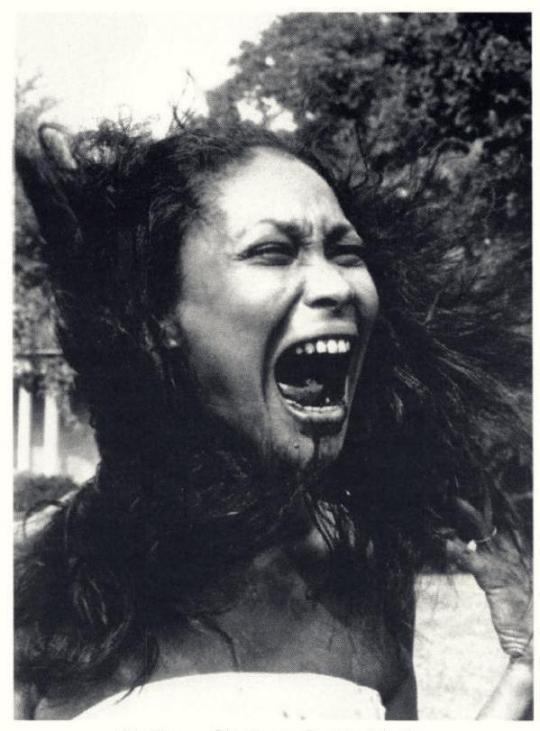
Marlene Clark- GANJA AND HESS (1973)
Marlene Clark made A LOT of cool movies in the 70′s.
Here are only some-
..MIDNIGHT COWBOY (1969)
.PUTNEY SWOPE (1969)
. NIGHT OF THE COBRA WOMAN (1972)
.BEWARE THE BLOB (1972)
.SLAUGHTER (1972)
.GANJA AND HESS (1973)
.ENTER THE DRAGON (1973) Enter the fucking Dragon!!!
.the BEAST MUST DIE (1974)
.BLACK MAMBA (1974)
LORD SHANGO (1975)
.SWITCHBLADE SISTERS (1975)
7 notes
·
View notes
Text
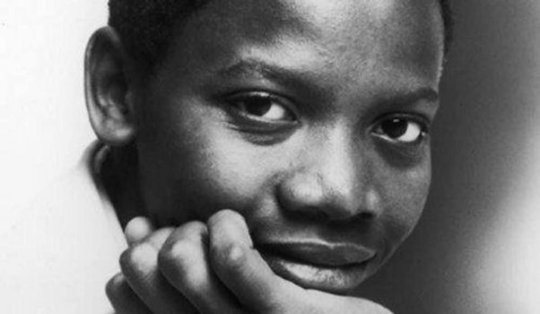
Ronald Dyson (June 5, 1950 – November 10, 1990) was an American soul and R&B singer and actor.
Early career
Born in Washington, D.C., Dyson grew up in Brooklyn, New York where he sang in church choirs. At just 18 years of age, he won a lead role in the Broadway production of Hair, debuting in New York in 1968. Dyson became an iconic voice of the 1960s with the lead vocal in the show's anthem of the hippie era, "Aquarius". It is Dyson's voice leading off the song and opening the show with the famous lyric "When the Moon is in the seventh house, and Jupiter aligns with Mars..." He made a cameo appearance in the 1979 motion picture version of "Hair", singing "3-5-0-0" with another "Hair" alumnus, Melba Moore.
Later career
Dyson also appeared in the 1969 film Putney Swope.
After Hair, Dyson pursued his stage career with a role in Salvation in 1970. His recording of a song from the Salvation score, "(If You Let Me Make Love to You Then) Why Can't I Touch You?", successfully launched his record career, breaking into the Top 10 of the US Billboard Hot 100 record chart, peaking at number eight in 1970. The follow-up, "I Don't Wanna Cry", was a strong US R&B seller, climbing to number nine.
In 1971, "When You Get Right Down To It", of which his was a more dramatic cover version of a song that had been a hit the previous year for the Delfonics, made the US charts, and reached number 34 on the UK Singles Chart in December that year.
His record company, Columbia Records, sent him to Philadelphia in 1973 to be produced by Thom Bell, one of the premier producers of the day, for several tracks. Bell's highly orchestrated style suited Dyson with hits including "One Man Band (Plays All Alone)", which reached number 28 on the Hot 100 and number 15 on the R&B chart, and "Just Don't Want to Be Lonely" peaking at number 60 on the Hot 100 and number 29 on the R&B chart. These appeared on an album which was also made up of re-mixes of some earlier recordings, including "When You Get Right Down To It".
Dyson remained with Columbia working with top-line producers for another three albums, The More You Do It (1976), Love in All Flavors (1977) and If The Shoe Fits (1979). The title track of the first of the three resulted in one of the singer's biggest-selling records, reaching number six on the R&B chart. It was produced by Charles "Chuck" Jackson (half brother of Jesse Jackson and no relation to the more famous singer of the same name who recorded for the same company in the 1960s) and Marvin Yancy, who had been responsible for successfully launching the career of Natalie Cole with a series of hits. (Jackson and Yancy had also produced hits for a Chicago soul group, The Independents, with whom Jackson was also lead singer.)
In 1986, Dyson also provided the vocals for the song "Nola" on the She's Gotta Have It soundtrack.
Dyson then moved to an Atlantic Records subsidiary label, the Cotillion Records label, in 1981 for two albums and several singles which were only moderately successful. His acting and singing career had begun to stall in the late 1970s due to ill health, and it was in 1983 that Dyson appeared on the R&B chart for the last time on Cotillion with "All Over Your Face". His final solo recording was "See The Clown" in 1990.
Death
Dyson died at the age of 40 from heart failure on November 10, 1990, in Brooklyn, New York.
Legacy
A posthumous release on Society Hill Records appeared in 1991, when a duet with Vicki Austin, "Are We So Far Apart (We Can't Talk Anymore)", dented the US R&B chart, reaching number 79 during a five-week run.
34 notes
·
View notes
Text
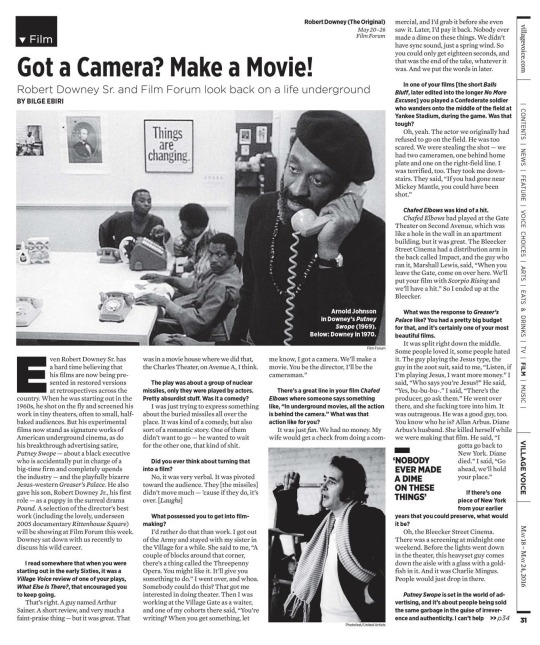
4 notes
·
View notes
Text
3 notes
·
View notes
Photo
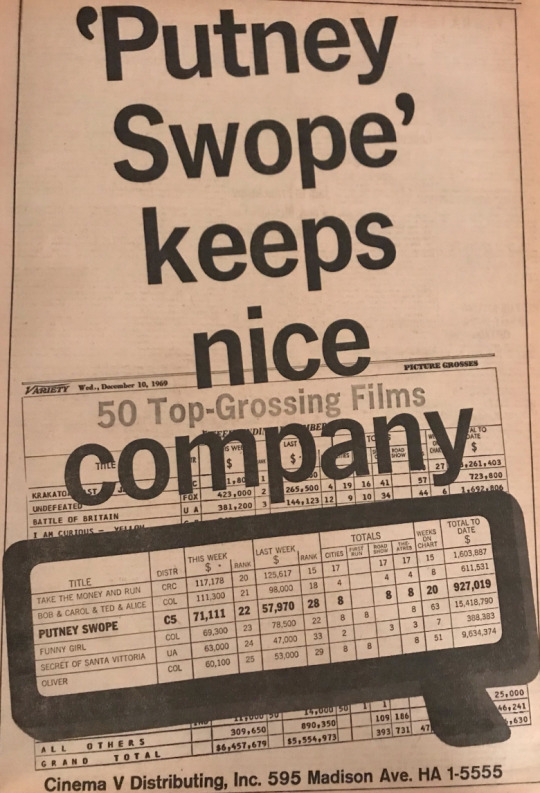
Robert Downey’s Putney Swope
7 notes
·
View notes
Text
On May 14, 2010, Putney Swope and Greaser's Palace were screened as a double-feature on TCM Underground.


#tcm underground#putney swope#greaser's palace#robert downey sr.#arnold johnson#allan arbus#western#revisionist western#weird west#satire#arthouse film#cult cinema#satirical film#movie art#art#drawing#movie history#pop art#modern art#pop surrealism#cult movies#portrait#cult film
2 notes
·
View notes
